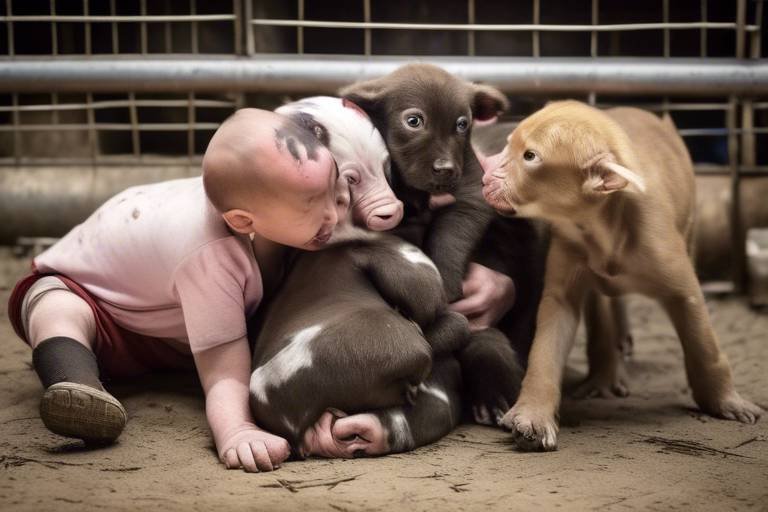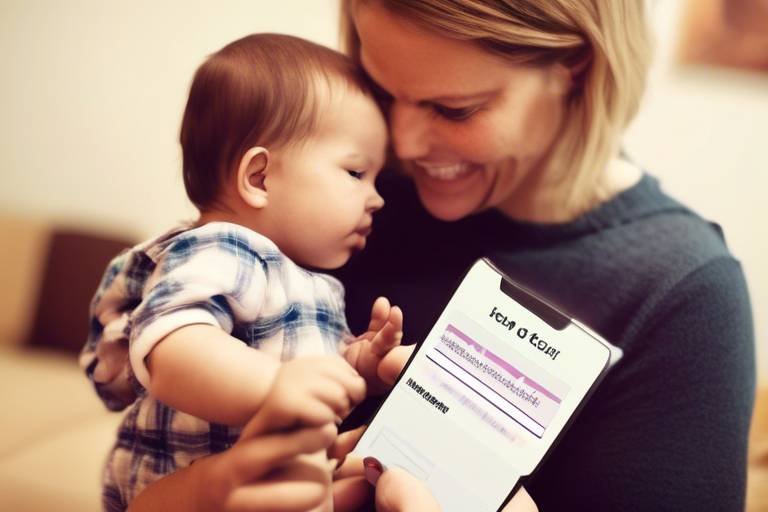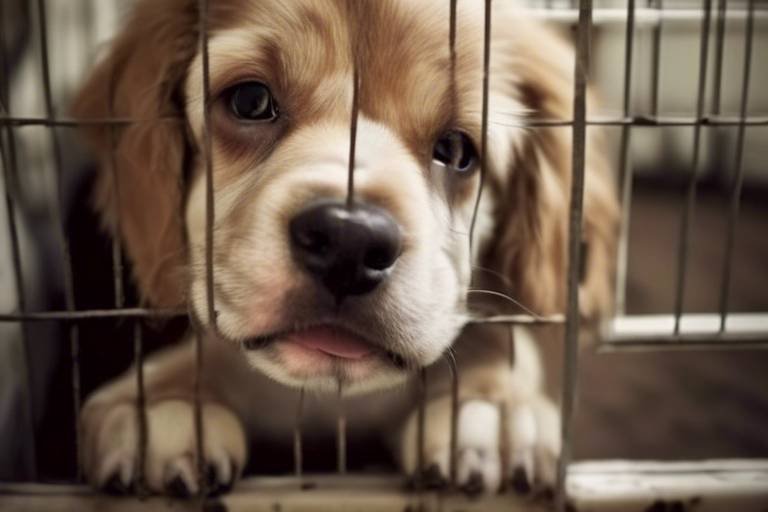How to Handle Post-Adoption Guilt
Adopting a child is one of the most beautiful and fulfilling journeys a person can embark on, but it can also be fraught with complex emotions, particularly feelings of guilt. Post-adoption guilt is a common experience among adoptive parents, often stemming from the overwhelming responsibility of ensuring that their child feels loved, secure, and accepted. This guilt can manifest in various ways, such as questioning one’s parenting abilities or feeling inadequate compared to biological parents. It's crucial to understand that these feelings are normal and part of the emotional landscape of adoption.
Imagine standing on a tightrope, balancing between the joy of having a new family member and the fear of not being good enough. This balancing act can lead to a whirlwind of emotions that might leave you feeling lost. The first step in handling post-adoption guilt is recognizing and acknowledging these feelings. By doing so, you open the door to healing and understanding. Remember, you're not alone in this journey; many adoptive parents share similar struggles.
Often, the guilt stems from a deep-seated fear of not meeting the unique needs of your child, which can be amplified by societal expectations and personal insecurities. It’s essential to realize that no parent is perfect, and comparing yourself to others—especially biological parents—can be a slippery slope. Instead, focus on the love and care you provide, which is what truly matters in the eyes of your child.
In the next sections, we will delve deeper into the common triggers of post-adoption guilt, explore effective strategies to cope with these feelings, and emphasize the importance of community and professional support. By understanding and addressing these aspects, you can foster a healthier family dynamic and embrace the joys of adoption without the weight of guilt holding you back.
Post-adoption guilt can manifest in various ways, often stemming from feelings of inadequacy or fear of not meeting a child's needs. Recognizing these emotions is the first step toward healing. The journey of adoption is not just about the child; it's also about the parents and the emotional complexities they face. Many adoptive parents find themselves grappling with questions like, “Am I doing enough?” or “Will my child ever feel truly at home?” These thoughts can lead to a cycle of guilt that is hard to break.
Identifying the specific triggers that lead to feelings of guilt is essential. Common sources include societal pressures, comparisons with biological parents, and the child's emotional responses. It's vital to understand that these triggers are often based on external perceptions rather than the reality of your parenting experience.
Societal norms and expectations can create an overwhelming sense of pressure for adoptive parents, leading to feelings of guilt when they feel they don't measure up to these standards. The media often portrays adoption as a fairy tale, glossing over the challenges that come with it. This unrealistic representation can leave parents feeling inadequate when their experiences do not align with these idealized narratives.
Media portrayals of adoption often romanticize the experience, which can lead to unrealistic expectations and guilt when reality does not align with these narratives. For instance, movies and TV shows frequently depict adoptive families as perfect, overlooking the emotional struggles that can arise. This can make adoptive parents feel like they are failing when they encounter difficulties.
Engaging with supportive communities can help alleviate feelings of guilt by providing a space for shared experiences and understanding among adoptive families. Connecting with others who have gone through similar experiences can be incredibly validating. It’s a reminder that you’re not alone in your feelings, and together, you can share coping strategies and advice.
Understanding a child's emotional responses to adoption can help parents navigate their feelings of guilt, as these responses may reflect their own struggles rather than parental shortcomings. Children may express their feelings differently, and it’s essential for parents to recognize that these emotions are valid. Sometimes, a child's anger or sadness is not a reflection of your parenting but rather their own journey of adjustment.
Implementing practical strategies can help adoptive parents manage their guilt effectively. This includes self-care, open communication, and seeking professional support when needed. Remember, taking care of yourself is just as important as taking care of your child. By prioritizing your well-being, you can become a more resilient and supportive parent.
Encouraging open dialogue within the family can foster understanding and mitigate feelings of guilt, allowing parents and children to express their feelings in a safe environment. Create a space where everyone feels comfortable sharing their thoughts and emotions. This can lead to deeper connections and a better understanding of each other's experiences.
Therapy or counseling can provide invaluable support for adoptive parents dealing with guilt, offering tools and techniques to process their emotions and improve family dynamics. A professional can help you navigate these complex feelings, providing a fresh perspective and coping strategies tailored to your unique situation.
- What is post-adoption guilt? - It's the feeling of guilt that adoptive parents may experience, often stemming from fears of inadequacy or not meeting their child's needs.
- How can I cope with these feelings? - Open communication, self-care, and seeking professional support are effective strategies.
- Is it normal to feel guilty after adoption? - Yes, many adoptive parents experience these feelings; it's a common part of the adoption journey.

Understanding Post-Adoption Guilt
Post-adoption guilt is a complex emotional landscape that many adoptive parents navigate. It's not uncommon for these feelings to arise, often manifesting as a nagging sense of inadequacy or a fear that one might not be meeting the needs of their child. Imagine walking into a room filled with expectations, each one heavier than the last, and feeling as if you might trip at any moment. This is how many adoptive parents feel—constantly questioning their decisions and abilities.
Recognizing these emotions is the first crucial step toward healing. It's essential to understand that feeling guilty does not mean you are a bad parent. Instead, it reflects the deep love and concern you have for your child. Post-adoption guilt can stem from various sources, including personal insecurities and external pressures. For instance, many adoptive parents grapple with the idea of whether they can provide the same level of support and nurturing as biological parents. This comparison can be particularly damaging, leading to a cycle of self-doubt.
Furthermore, the emotional responses of the child can amplify these feelings of guilt. When children struggle with their own identity or exhibit signs of grief regarding their biological families, parents may feel as though they are somehow failing. It's important to recognize that a child's emotional journey is complex and often reflects their own struggles rather than a direct correlation to parental shortcomings.
To better understand post-adoption guilt, consider some common feelings that might arise:
- Inadequacy: Feeling like you’re not doing enough for your child.
- Fear: Worrying that you might not be meeting your child's emotional needs.
- Comparison: Measuring your parenting against that of biological parents.
- Isolation: Feeling alone in your experiences and emotions.
Ultimately, understanding post-adoption guilt is about recognizing that these feelings are not only common but also a natural part of the adoption journey. By acknowledging and validating these emotions, adoptive parents can begin to work through them, paving the way for healthier family dynamics and a more fulfilling parenting experience.
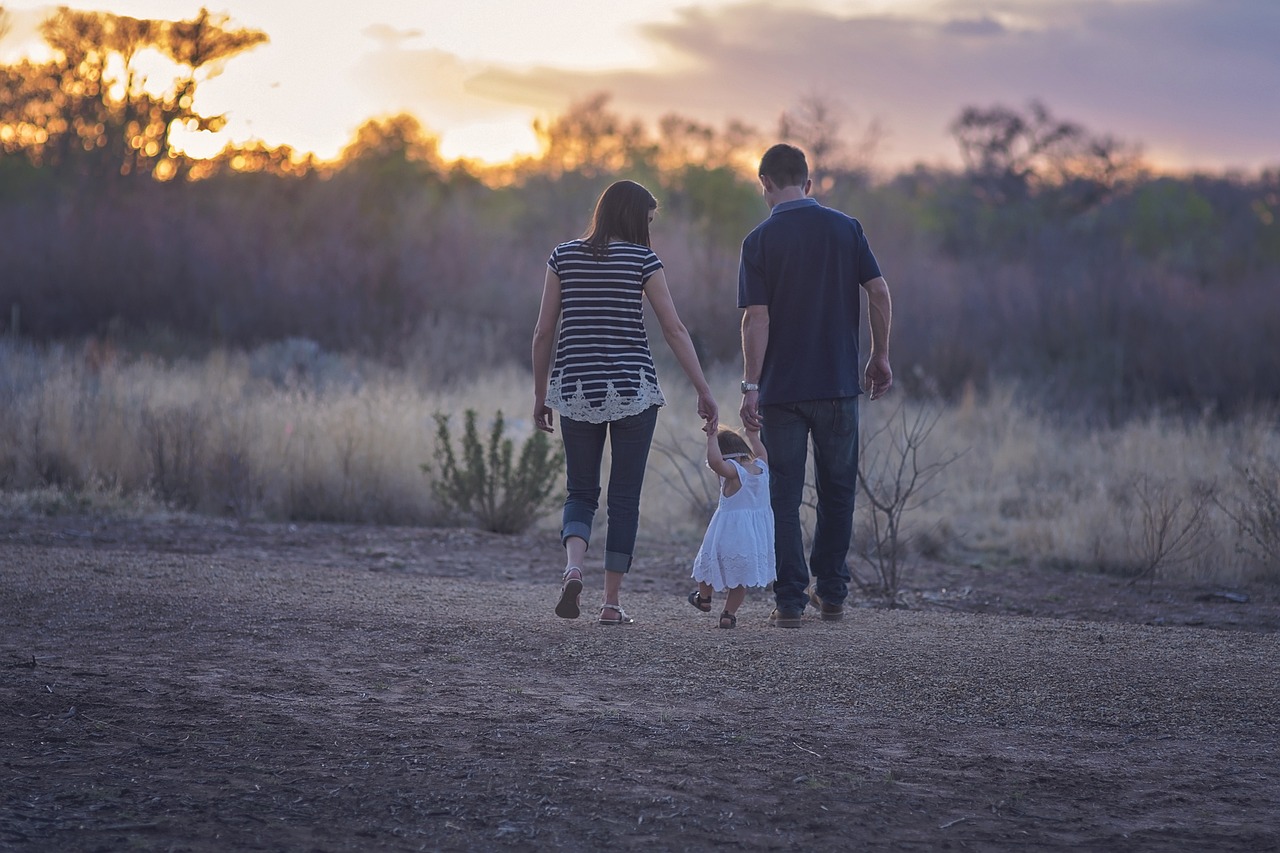
Common Triggers of Guilt
Post-adoption guilt can be a complex emotional landscape for many adoptive parents. Understanding the common triggers of this guilt is crucial in navigating these feelings effectively. One of the primary sources of guilt stems from societal pressures. Society often holds a mirror to adoptive families, reflecting unrealistic expectations that can leave parents feeling inadequate. For instance, when parents see other families, especially biological ones, seemingly thriving without a hitch, they may find themselves questioning their own parenting abilities. This comparison can be detrimental, leading to a spiral of self-doubt and guilt.
Another significant trigger is the media representation of adoption. Movies and television shows often portray adoption in a highly romanticized manner, glossing over the challenges that come with it. These portrayals can create an illusion of what adoption should look like, leaving parents feeling guilty when their reality doesn't align with these idealized narratives. When the day-to-day struggles of parenting an adopted child clash with the fairy-tale images presented in the media, it can evoke feelings of failure and inadequacy.
Moreover, the emotional responses of the child can also play a pivotal role in triggering guilt. Children may express feelings of loss or confusion about their adoption, which can inadvertently place the burden of those emotions on the adoptive parents. Parents might interpret their child's sadness or anger as a reflection of their own shortcomings, leading to a cycle of guilt. Understanding that these emotional responses are part of the child's journey can help parents separate their feelings from their child's experiences.
Lastly, engaging with supportive communities can either alleviate or amplify feelings of guilt. While these groups can provide a space for shared experiences and understanding, they can also unintentionally foster comparisons. If one parent shares a particularly positive experience, others may feel guilty about their own struggles. It's essential to approach these communities with a mindset of support rather than competition, recognizing that every family's journey is unique.
In summary, the common triggers of post-adoption guilt include societal expectations, media representations, the child's emotional responses, and interactions within supportive communities. By identifying these triggers, adoptive parents can begin to address their feelings more constructively, paving the way for healing and understanding.
- What is post-adoption guilt?
Post-adoption guilt refers to the feelings of inadequacy or fear that adoptive parents may experience regarding their ability to meet their child's needs.
- How can I cope with feelings of guilt?
Implementing strategies such as open communication with family members, engaging in self-care, and seeking professional help can be effective ways to cope with guilt.
- Are my feelings of guilt normal?
Yes, many adoptive parents experience feelings of guilt. It's a common emotional response and recognizing it is the first step toward managing it.
- How can I support my child through their emotional responses?
Encouraging open dialogue about feelings and validating your child's emotions can foster a safe environment for them to express themselves.
Societal Expectations
When it comes to adoption, societal expectations can loom large, acting like a shadow that follows adoptive parents everywhere they go. These expectations are often rooted in cultural narratives that dictate what a "perfect" family should look like. As a result, many adoptive parents find themselves grappling with the fear that they are somehow falling short of these ideals. It's like trying to fit a square peg into a round hole—no matter how hard you try, it just doesn't work.
Adoptive parents may feel pressure to create a seamless family dynamic, one that mirrors the traditional family structure. This pressure can lead to feelings of inadequacy and guilt, especially when they perceive themselves as not meeting the high bar set by society. The truth is, every family is unique, and there is no single blueprint for success. Just like a fingerprint, each family's journey is distinctive, shaped by individual experiences and challenges.
Moreover, the media often plays a significant role in shaping these societal expectations. Movies and television shows frequently portray adoption as a heartwarming, fairy-tale experience, glossing over the complexities and emotional turmoil that can accompany it. This unrealistic portrayal can lead adoptive parents to feel guilty when their experiences don't align with what they see on screen. They may wonder, "Why isn't my adoption story as picture-perfect as those in the movies?" This comparison can be detrimental, fostering a sense of isolation and self-doubt.
To combat these societal pressures, it's essential for adoptive parents to cultivate a strong support system. Engaging with other adoptive families can provide a sense of belonging and understanding. These communities often share similar struggles and triumphs, allowing parents to realize that they are not alone in their feelings. When they hear another parent's story, it can be a lightbulb moment, illuminating the fact that imperfections are part of the journey.
In summary, societal expectations can create an overwhelming sense of pressure for adoptive parents. It's important to remember that every family's path is unique, and embracing these differences can lead to a healthier and more fulfilling family dynamic. Parents should focus on their own experiences and feelings, rather than trying to meet external standards that may not be realistic or relevant to their situation.
- What is post-adoption guilt? Post-adoption guilt refers to the feelings of inadequacy or fear that adoptive parents may experience, worrying that they are not meeting their child's needs.
- How can I cope with societal pressures as an adoptive parent? Building a support network of other adoptive families and focusing on your unique family dynamics can help alleviate feelings of guilt and pressure.
- Is it normal to feel guilty after adopting a child? Yes, many adoptive parents experience guilt. Acknowledging these feelings is the first step toward managing them effectively.
- Can therapy help with post-adoption guilt? Absolutely! Professional support can provide valuable tools and techniques to help process feelings and improve family dynamics.
Media Representation
The portrayal of adoption in the media plays a significant role in shaping public perceptions and expectations. Often, these representations are steeped in a sense of idealism, showcasing heartwarming reunions and seamless transitions into adoptive families. While these narratives can be uplifting, they frequently gloss over the complexities and challenges that come with adoption. This can lead to a disconnect between the expectations set by movies and TV shows and the reality that adoptive parents face.
For many adoptive parents, the media's romanticized view of adoption can create an internal struggle. They may find themselves grappling with feelings of inadequacy when their experiences don't mirror the flawless stories depicted on screen. It's as if they are watching a movie and expecting their lives to play out with the same level of drama and resolution, leaving them feeling guilty when reality feels far less cinematic. This gap between expectation and reality can be a breeding ground for guilt, as parents may question their abilities and decisions.
Moreover, the pressure to conform to these idealized standards can be overwhelming. Adoptive parents may feel they must embody the perfect family dynamic, leading to stress and anxiety. They might compare their parenting styles to those of biological parents or to the flawless families portrayed in the media, further fueling feelings of inadequacy. It's crucial for parents to remember that these portrayals are often exaggerated and do not reflect the diverse and sometimes messy reality of family life.
To combat the negative effects of media representation, it's essential for adoptive parents to engage in open discussions about their feelings and experiences. Sharing stories with friends, family, or support groups can help demystify the adoption process and provide a more balanced view. By acknowledging that challenges are a normal part of the journey, parents can begin to alleviate the guilt that stems from unrealistic expectations.
In addition, seeking out resources that offer a more authentic portrayal of adoption can be beneficial. Books, documentaries, and blogs written by adoptive families can provide insights and validation, helping parents feel less alone in their experiences. These resources often highlight the struggles and triumphs of adoption, allowing parents to embrace their unique journey without the burden of societal expectations.
Ultimately, understanding the influence of media representation on feelings of guilt is a vital step for adoptive parents. By recognizing the disconnect between media portrayals and their own experiences, parents can work towards fostering a healthier family dynamic, free from the constraints of unrealistic standards.
- What is post-adoption guilt? Post-adoption guilt refers to the feelings of inadequacy or fear that adoptive parents may experience regarding their ability to meet their child's needs.
- How can I cope with feelings of guilt after adopting? Strategies include engaging in open communication with your family, practicing self-care, and seeking professional support when needed.
- Are these feelings normal? Yes, many adoptive parents experience feelings of guilt, and it is a common part of the adoption journey.
- How can media influence my feelings about adoption? Media often presents an idealized version of adoption, which can create unrealistic expectations and contribute to feelings of guilt when reality differs.
Supportive Communities
Finding your way through the maze of post-adoption guilt can feel daunting. However, one of the most effective ways to navigate these tumultuous emotions is by connecting with . These groups can serve as a lifeline, offering not just empathy but also practical advice and shared experiences that can help ease the burden of guilt. Imagine being in a room filled with people who truly understand what you're going through; it's like a breath of fresh air in a stuffy room.
Supportive communities come in various forms, from local adoption support groups to online forums and social media platforms. Each offers a unique space where adoptive parents can share their stories, challenges, and triumphs without fear of judgment. This sense of belonging can significantly reduce feelings of isolation, reminding parents that they are not alone in their struggles. In fact, many find that hearing others' experiences helps them to reframe their own feelings of guilt into something more manageable.
Moreover, these communities often provide valuable resources, such as workshops, webinars, and literature on adoption-related topics. Engaging with these resources can empower parents to better understand their emotions and the dynamics within their families. For example, some groups may host discussions on effective communication strategies with children about adoption, helping parents to navigate sensitive topics with care and confidence.
Another fantastic aspect of supportive communities is the opportunity for friendship and networking. Building connections with other adoptive parents can lead to lasting friendships, creating a support system that extends beyond the group meetings. This network can be invaluable during challenging times, providing encouragement and understanding. It's like having a team of cheerleaders who know exactly what you're going through!
In summary, engaging with supportive communities can significantly alleviate feelings of post-adoption guilt. By sharing experiences and learning from one another, adoptive parents can foster a healthier family dynamic and ultimately feel more confident in their parenting journey. Remember, it’s not just about finding solutions; it’s about building a community that uplifts and empowers each other.
- What are some signs of post-adoption guilt? Common signs include feelings of inadequacy, anxiety about parenting decisions, and constant comparisons to biological parents.
- How can I find a supportive community? Look for local adoption support groups, online forums, or social media groups dedicated to adoptive families.
- Is it normal to feel guilty after adopting? Yes, many adoptive parents experience guilt; it's a common part of the emotional landscape of adoption.
- When should I seek professional help? If feelings of guilt are overwhelming or affecting your daily life, it may be time to consult a therapist or counselor.
Child's Emotional Responses
Understanding a child's emotional responses to adoption is crucial for adoptive parents navigating their own feelings of guilt. Children may experience a whirlwind of emotions, including confusion, sadness, and even anger, as they grapple with their identity and the changes in their lives. It's essential to recognize that these responses are not a reflection of parental inadequacies but rather a natural part of the adoption journey. Just like a stormy sea calms to a gentle wave, a child's emotional landscape can shift dramatically, often leaving parents feeling helpless or guilty.
For instance, a child might express feelings of loss or abandonment, which can be particularly challenging for adoptive parents to witness. These emotions can manifest in various ways, such as withdrawal, tantrums, or even acting out. Parents may find themselves questioning, "Am I doing enough?" or "What could I have done differently?" However, it's vital to remember that these feelings are often rooted in the child's past experiences rather than the parents' actions.
To better understand these emotional responses, consider the following common feelings children may experience post-adoption:
- Loss: Children may mourn the loss of their birth family, leading to feelings of sadness.
- Confusion: They may struggle to understand their place within the family and the broader world.
- Fear: Children might fear abandonment or rejection, particularly if they have faced instability in their past.
- Anger: Some children may express anger towards their circumstances or the adoption process itself.
As adoptive parents, acknowledging these emotions is crucial. It allows for a more empathetic approach to parenting, where understanding replaces guilt. Instead of viewing a child's emotional turmoil as a reflection of their parenting abilities, parents can see it as a call to action—a chance to foster open communication and create a safe space for their child to express their feelings. Just as a gardener tends to their plants, nurturing them to grow strong and healthy, parents can cultivate an environment where their child feels secure and understood.
Moreover, it's important to engage in conversations about feelings and emotions, providing children with the vocabulary they need to express themselves. Encouraging them to talk about their past and how it makes them feel can help demystify their emotional responses and strengthen the bond between parent and child. This not only alleviates the parents' feelings of guilt but also empowers the child, giving them a voice in their own narrative.
In conclusion, while the emotional responses of children post-adoption can be challenging, they are also an opportunity for growth and connection within the family. By recognizing that these feelings are part of a larger journey, adoptive parents can navigate their own guilt and foster a deeper understanding and love within their family dynamic.
Q: How can I support my child through their emotional responses to adoption?
A: Open communication is key. Encourage your child to express their feelings and validate their emotions. Consider seeking family therapy if needed.
Q: Is it normal to feel guilty as an adoptive parent?
A: Yes, many adoptive parents experience guilt. It's important to recognize these feelings and understand that they are common and can be managed.
Q: What resources are available for adoptive families dealing with emotional challenges?
A: There are many resources, including support groups, books on adoption, and professional counseling services that can provide guidance and support.
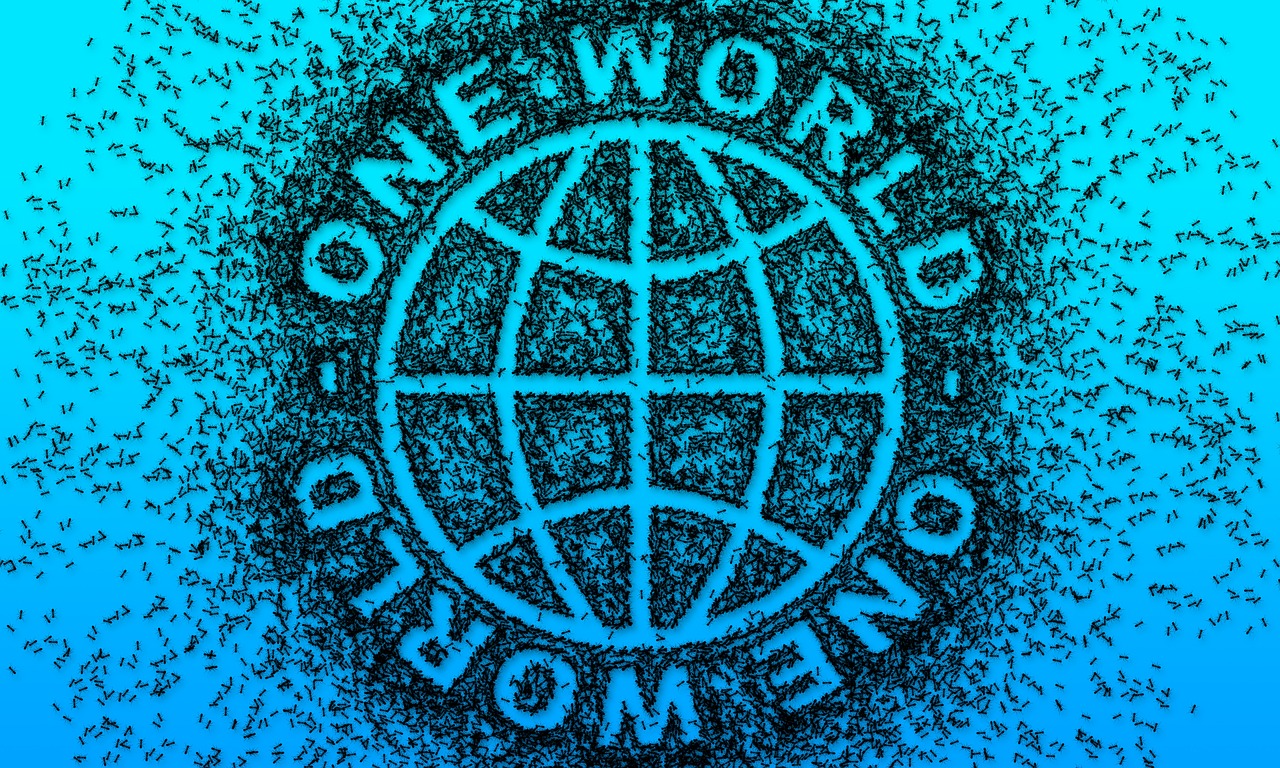
Strategies to Cope with Guilt
Feeling guilty after adoption is a common experience, but the good news is that there are effective strategies to help you cope with these emotions. One of the most important steps is to prioritize self-care. Just like a car needs fuel to run smoothly, you need to take care of your own emotional and physical well-being to be the best parent you can be. This can mean setting aside time for activities you enjoy, whether it’s reading a book, going for a walk, or even indulging in a hobby. Remember, you can’t pour from an empty cup!
Another powerful strategy is to foster open communication within your family. It’s essential to create an environment where everyone feels safe to share their thoughts and feelings. This not only helps in alleviating guilt but also strengthens the bond between parents and children. Consider scheduling regular family meetings where you can discuss emotions, expectations, and any challenges you might be facing together. This can be a great way to normalize feelings of guilt and remind everyone that they are not alone in their struggles.
Additionally, don’t hesitate to seek professional help if you're feeling overwhelmed. A therapist or counselor who specializes in adoption can provide invaluable support. They can offer you tools and techniques to process your emotions effectively. Think of them as a guide on your journey, helping you navigate the sometimes rocky terrain of post-adoption feelings. Therapy can also provide a safe space for you to explore deeper issues that may be contributing to your guilt.
It’s also beneficial to connect with other adoptive parents. Engaging with supportive communities—whether online or in-person—can significantly reduce feelings of isolation. Sharing experiences with others who understand what you’re going through can be incredibly validating. You might even find that discussing your feelings of guilt with others leads to surprising insights and solutions.
Finally, consider keeping a journal. Writing down your thoughts can be a therapeutic way to process your emotions. You can reflect on your feelings of guilt, track your progress, and even jot down moments of joy and gratitude in your parenting journey. This practice not only helps in organizing your thoughts but also allows you to see how far you've come over time.
In summary, coping with post-adoption guilt requires a multi-faceted approach. By prioritizing self-care, fostering open communication, seeking professional help, connecting with others, and journaling, you can navigate these complex emotions more effectively. Remember, it’s perfectly normal to feel guilty at times, but with the right strategies, you can transform those feelings into opportunities for growth and connection.
- What is post-adoption guilt? Post-adoption guilt refers to the feelings of inadequacy or fear that adoptive parents may experience regarding their ability to meet their child's needs.
- How can I recognize my triggers for guilt? Take time to reflect on situations that make you feel guilty. Keeping a journal can help you identify patterns and triggers.
- Is it normal to feel guilty after adopting? Yes, many adoptive parents experience guilt, and it’s a normal part of the emotional journey of adoption.
- When should I seek professional help? If feelings of guilt are overwhelming or interfering with your daily life, it may be time to consult a therapist or counselor.
Open Communication
Open communication is a vital cornerstone in any family dynamic, but it becomes even more crucial in adoptive families where emotions can run high and misunderstandings may arise. When adoptive parents foster an environment where everyone feels safe to express their thoughts and feelings, it not only strengthens the family bond but also helps alleviate feelings of guilt. Imagine a garden: without the proper care and attention, it can become overgrown with weeds. Similarly, when communication is neglected, misunderstandings and negative feelings can take root.
Encouraging open dialogue means creating a space where family members can freely share their experiences, worries, and joys without fear of judgment. It’s about more than just talking; it’s about listening, too. When parents actively listen to their children, it shows that their feelings are valid and important. This two-way street of communication can be particularly beneficial in addressing the complex emotions surrounding adoption. For instance, if a child expresses feelings of sadness or confusion about their adoption, it’s essential for parents to acknowledge those feelings rather than dismiss them. This can help children feel heard and understood, which in turn can reduce feelings of guilt in parents who might worry they are not doing enough.
To facilitate this open communication, families can set aside regular times to talk, whether it be during family dinners or designated family meetings. Here are some strategies to promote healthy communication:
- Active Listening: Show genuine interest in what your child has to say. Nod, maintain eye contact, and respond appropriately to encourage them to share more.
- Non-Judgmental Responses: Create a safe space by responding to your child's feelings without criticism or immediate solutions. Sometimes, they just need to vent.
- Share Your Own Feelings: Don’t be afraid to express your own emotions related to adoption. This vulnerability can help your child feel less isolated in their feelings.
Moreover, it can be beneficial to use tools like family journals or art to express feelings. For example, a family journal where each member writes down their thoughts can serve as a great conversation starter. Additionally, engaging in activities together, such as art or games, can help ease into deeper conversations, making it less intimidating for children to open up.
In conclusion, fostering open communication within an adoptive family is not just about discussing adoption; it’s about building a foundation of trust and understanding. By encouraging honest conversations, families can navigate the complexities of adoption more effectively, resulting in a healthier emotional environment for everyone involved.
Q1: What if my child is reluctant to talk about their feelings?
A1: It's common for children to be hesitant to discuss their feelings. Try to create a relaxed atmosphere and give them time. Sometimes, engaging in a fun activity can help them feel more comfortable opening up.
Q2: How can I improve my listening skills?
A2: Practice active listening by focusing entirely on what your child is saying without interrupting. Reflect back what you've heard to ensure understanding and show that you value their perspective.
Q3: Are there any resources available for adoptive families?
A3: Yes, there are many resources available, including books, online forums, and local support groups specifically for adoptive families. These can provide valuable insights and foster connections with others who understand your journey.
Seeking Professional Help
When navigating the turbulent waters of post-adoption guilt, the idea of seeking professional help can often feel like a daunting task. However, it's crucial to understand that reaching out for support is not a sign of weakness; rather, it’s a courageous step towards healing and personal growth. Just as a sailor relies on a compass to find their way through a storm, adoptive parents can benefit from the guidance of mental health professionals who specialize in adoption-related issues.
Therapists and counselors can offer a safe space for parents to explore their feelings without judgment. They can help unpack the layers of guilt and anxiety that often accompany the adoption journey. Through various therapeutic techniques, such as cognitive-behavioral therapy (CBT) or family therapy, parents can learn to reframe negative thoughts and develop healthier coping mechanisms. This process can be incredibly liberating, allowing parents to see their situation from a fresh perspective.
Moreover, engaging in therapy can foster better communication within the family. When parents work through their emotions with a professional, they often find it easier to express their feelings to their children. This open dialogue can create a more supportive home environment, where everyone feels heard and understood. In fact, many therapists encourage family sessions, where all members can share their experiences and emotions, strengthening the family bond.
It’s also important to consider the type of professional help that might be most beneficial. Some parents may prefer individual therapy, while others might find group therapy or support groups more comforting. Here’s a quick overview of different options:
| Type of Support | Description |
|---|---|
| Individual Therapy | One-on-one sessions with a therapist to explore personal feelings and challenges. |
| Family Therapy | Involves all family members to improve communication and resolve conflicts. |
| Support Groups | Group sessions where adoptive parents can share experiences and support each other. |
| Online Counseling | Virtual therapy sessions that provide flexibility and accessibility. |
Ultimately, seeking professional help is about prioritizing mental health and well-being. Just as we would consult a doctor for physical ailments, it’s equally important to address emotional struggles. By taking this step, adoptive parents not only work towards their emotional healing but also set a powerful example for their children about the importance of seeking help when needed. Remember, it's perfectly okay to ask for directions when the path gets confusing—after all, every journey is easier with a little guidance.
- What are the signs that I should seek professional help?
If you find that feelings of guilt are overwhelming, affecting your daily life, or causing distress in your family, it may be time to consult a mental health professional. - How do I find a therapist who specializes in adoption issues?
Start by researching local mental health professionals, checking their credentials, and looking for those with experience in adoption and family dynamics. Online directories can also be helpful. - Is therapy effective for post-adoption guilt?
Many parents find therapy to be a valuable resource for processing their emotions, gaining insight, and developing coping strategies. - Can I attend therapy with my child?
Yes, family therapy can be beneficial, allowing both parents and children to share their feelings in a supportive environment.
Frequently Asked Questions
- What is post-adoption guilt?
Post-adoption guilt is a complex emotional response that adoptive parents may experience after bringing a child into their family. It often arises from feelings of inadequacy, fear of not meeting the child's needs, or societal pressures to be the "perfect" parent.
- What are common triggers for post-adoption guilt?
Common triggers include societal expectations, comparisons with biological parents, and the child's emotional responses to their adoption. These factors can create an overwhelming sense of pressure that leads to guilt when parents feel they fall short.
- How can societal expectations impact adoptive parents?
Societal norms often set unrealistic standards for parenting, which can leave adoptive parents feeling inadequate. When they perceive that they are not measuring up to these expectations, it can lead to feelings of guilt and self-doubt.
- How does media representation affect adoption experiences?
Media often romanticizes adoption, creating a narrative that may not align with the realities of the experience. This disparity can lead to guilt when adoptive parents find themselves struggling with challenges that are not depicted in movies or books.
- What role do supportive communities play in managing guilt?
Engaging with supportive communities can be incredibly beneficial for adoptive parents. These groups provide a safe space for sharing experiences, offering understanding and validation, which can help alleviate feelings of guilt.
- How can open communication help in managing post-adoption guilt?
Encouraging open dialogue within the family allows everyone to express their feelings and concerns. This understanding can mitigate feelings of guilt, as it fosters a supportive environment where both parents and children feel heard.
- When should adoptive parents seek professional help?
If feelings of guilt become overwhelming or interfere with family dynamics, it may be beneficial to seek therapy or counseling. Professionals can provide valuable tools and techniques to help process these emotions and improve overall family relationships.






